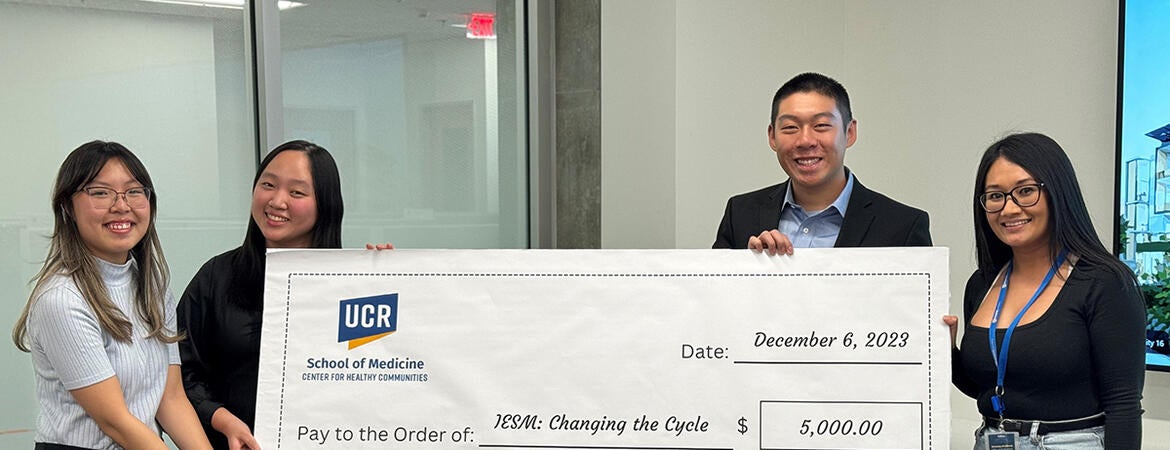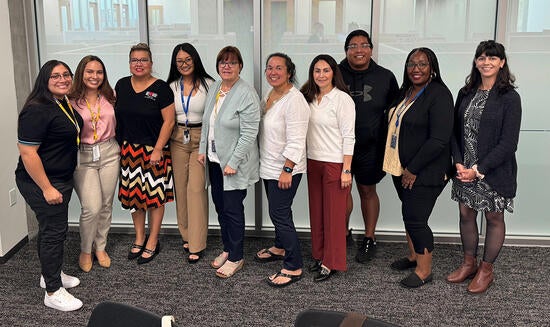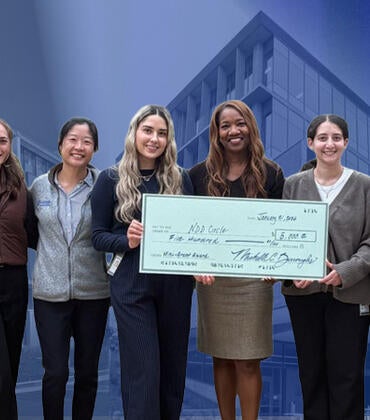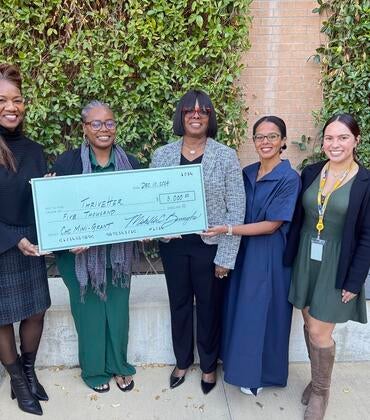
The Center for Healthy Communities (CHC) has announced that the Inland Empire Street Medicine (IESM) is the recipient of $5,000 as part of their annual mini grant program. In its fifth year, the program has disbursed more than $40,000 to community medicine and population health projects.
IESM's program, "Changing the Cycle: Menstrual Health Initiative" is intended to provide sustainable menstrual products and workshops in both English and Spanish to unsheltered populations. These individuals often face difficulties in obtaining basic menstrual supplies which can result in serious risk of toxic shock syndrome. The initiative will focus on minimizing the gaps in reproductive health by offering instant relief and encouraging upcoming healthcare providers to have conversations about menstrual health.
"We are immensely honored to be a recipient of the UCR School of Medicine: Center for Healthy Communities mini-grant this year," said Anh Voong, a third-year biology major at UCR and project lead and grant writer for IESM.
Voong highlighted the struggles faced by unhoused patients and emphasized how "Changing the Cycle" would transform access to reproductive and women's health resources for this vulnerable population.
“We have seen countless unhoused patients face barriers in attaining supplies that are essential to fulfilling basic needs. It is heartbreaking to see how those living in period poverty face the difficult dilemma of deciding between menstrual supplies and other necessities such as food,” she said, adding that the initiative also aims to challenge socio-cultural norms surrounding menstrual health by normalizing conversations and providing patient empowerment.

The 2023-2024 Mini-Grant review committee was made up of:
- Marci Coffey, director of strategic provider partnerships, Inland Empire Health Plan (IEHP)
- Jorge Delos Santos, director of community health programs, TruEvolution
- Fatima Baldemar, founding executive director, Love and Nurture Initiative
- Sunny Nakae, senior associate dean – equity, inclusion, diversity, and partnership, California University of Science and Medicine
- Kay Monteith, instructional designer, UCR School of Medicine Faculty Development
Fara Aidul, community health manager, provided project support.
“Attending the Mini-Grant review meeting left me both impressed and amazed. This was an unforgettable and inspiring experience,” Monteith said.


